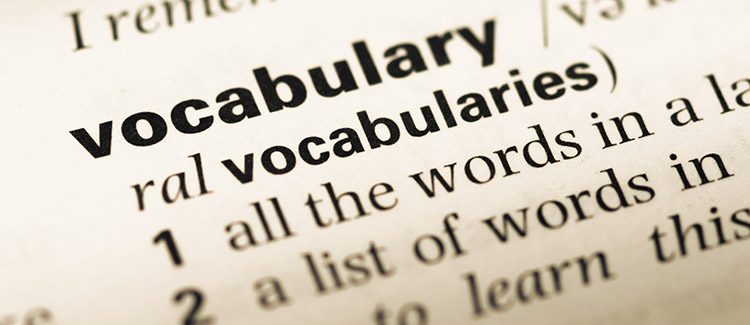"Nineteen Eighty-Four" - George Orwell
George Orwell's dystopian fiction novel follows the character of Winston Smith in when it is believed to be 1984. Winston is a low-ranked member of "the Party," a totalitarian-communist regime that has overtaken the region surrounding London known as "Oceania." Winston is frustrated with the Party and its overreach over all of its citizen's lives. Led by the mysterious "Big Brother," the Party invents the idea of "thoughtcrime" to prevent its subsidiaries and low-ranking citizens from thinking about rebelling or betraying it. The Party entirely controls the media and even creates a language called "Newspeak," which it uses to eliminate and rewrite history.
Winston, in a subtle act of rebellion, writes his deepest thoughts regarding the Party in a diary that he is not supposed to have. After meeting a woman by the name of Julia, Winston discovers that others think like him. Together, they fall in love and begin to formulate how they can end the rule of the Party. Later, it is finally revealed to Winston that O'Brien, a coworker of his, is a member of the fabled Party-resistant organization known as "the Brotherhood." It is presumed to be led by a man named Emmanuel Goldstein, who is often regarded as the archenemy of the Party.
When O'Brien initiates Winston and Julia into the informal organization, he gives Goldstein's book to Winston. After finishing the book, Winston is captured by the "Thought Police," along with Julia. As it turns out, O'Brien has been a member of the Thought Police all along and pretended to be a part of the Brotherhood. He tortures Winston, and upon his release, Winston has been brainwashed into loving Big Brother and the Party. Winston is dead on the inside, as he can no longer truly think for himself.
Golden-Nugget Analysis
"Who controls the past controls the future. Who controls the present controls the past."
This quotation from Chapter II of Orwell's Nineteen Eighty-Four emphasizes the fact that the more power a body of administration possesses, the more control they have over not only the future but also the past. This quote is a constant reminder that society must always question authority and maintain a cycle of checks and balances to keep one party from singlehandedly becoming too powerful. Once a body such as a government or political party becomes overpowering and reaches total dominance, there may be nothing left to stop it since it is above history itself.
*MORE* Quotes
“Perhaps one did not want to be loved so much as to be understood.”
“War is peace.
Freedom is slavery.
Ignorance is strength.”
“If you want to keep a secret, you must also hide it from yourself.”
“But if thought corrupts language, language can also corrupt thought.”
“Until they become conscious they will never rebel, and until after they have rebelled they cannot become conscious.”
“In the face of pain there are no heroes.”
“Freedom is the freedom to say that two plus two make four. If that is granted, all else follows.”
“Big Brother is Watching You.”
“Perhaps a lunatic was simply a minority of one.”
“The choice for mankind lies between freedom and happiness and for the great bulk of mankind, happiness is better.”
Vocabulary
(to understand what you're reading because, admittedly, it can be difficult to comprehend a classic)

contrived: showing effects of planning or manipulation
"It was one of those pictures which are so contrived that the eyes follow you about when you move" (Book 1, Chapter 1).
dissemble: behave unnaturally or affectedly
"To dissemble your feelings, to control your face, to do what everyone else was doing, was an instinctive reaction" (Book 1, Chapter 1).
multifarious: having many aspects
"And the Ministry had not only to supply the multifarious needs of the Party but also to repeat the whole operation at a lower level for the benefit of the proletariat" (Book 1, Chapter 4).
vapid: lacking significant liveliness, spirit, or zest
"A sort of vapid eagerness flitted across Winston's face at the mention of Big Brother" (Book 1, Chapter 6).
palpable: capable of being perceived
"'If there is hope,' he had written in the diary, 'it lies in the proles.' The words kept coming back to him, statement of a mystical truth and a palpable absurdity" (Book 2, Chapter 5).
remonstrance: the act of expressing earnest opposition or protest
"There was a long, nagging argument that went round and round, with shouts, whines, tears, remonstrances, bargaining" (Book 2, Chapter 7).
abasement: depriving one of self-esteem
"In our world there will be no emotions except fear, rage, triumph, and self-abasement" (Book 3, Chapter 3).
doublethink: believing two contradictory ideas at the same time
"Have you forgotten doublethink?" (Book 3, Chapter 3).
hedonistic: devoted to pleasure
"It is the exact opposite of the stupid hedonistic Utopias that the old reformers imagined" (Book, 3, Chapter 3).
proletarian: belonging to or characteristic of the working class
"The secret accumulation of knowledge — a gradual spread of enlightenment — ultimately a proletarian rebellion — the overthrow of the Party" (Book 3, Chapter 3).

Thanks for the summary! It was super helpful! Now I wanna read it lol.
ReplyDelete